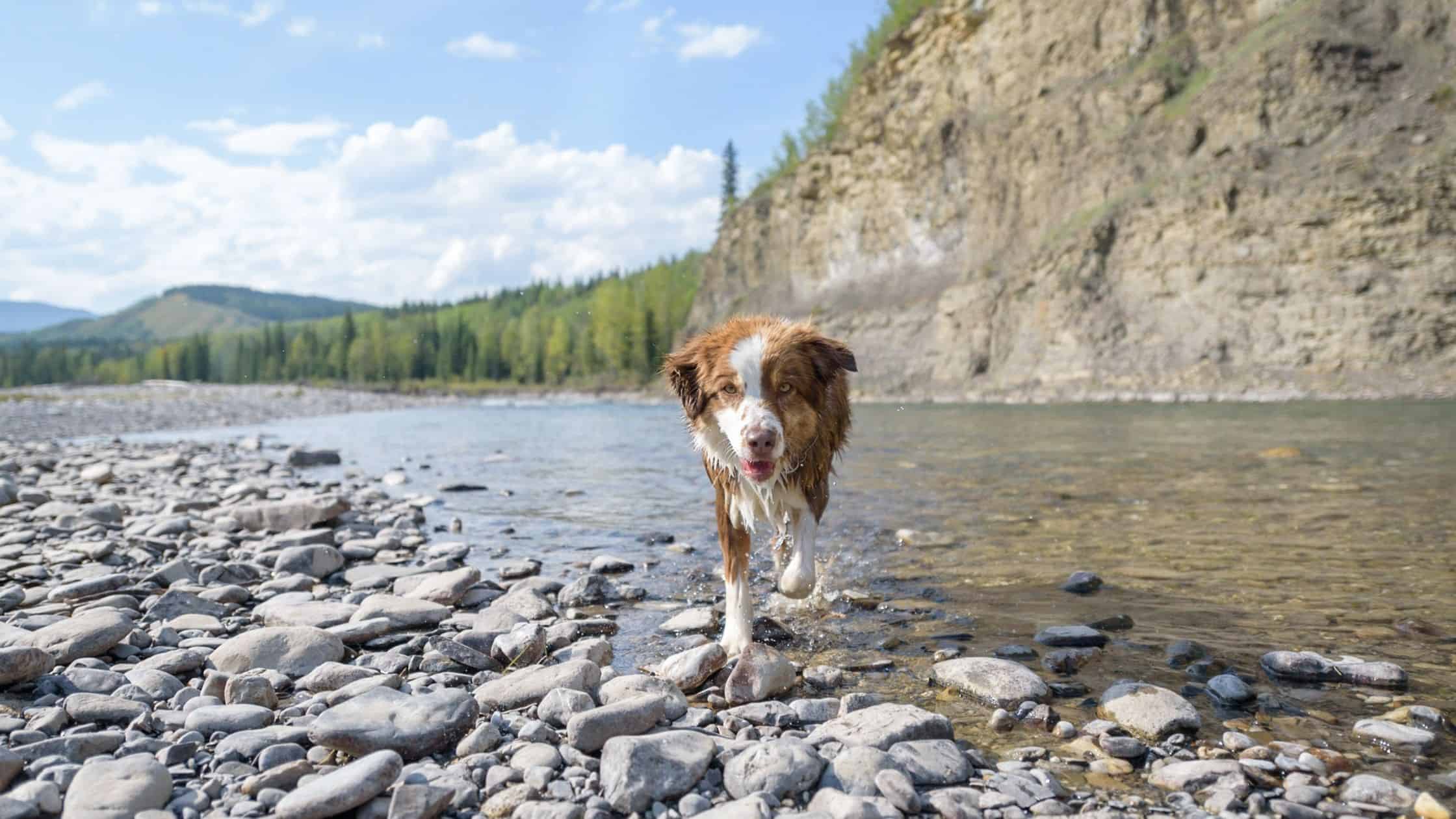What is Leptospirosis in Dogs & What You Should Know About it?

If you own a dog, it’s essential to understand this potentially dangerous disease and take the necessary precautions to keep your furry friend safe and healthy. Leptospirosis is a bacterial infection caused by the Leptospira bacteria. It can be found worldwide and can affect both animals and humans. Dogs can become infected through contact with contaminated water, soil, or the urine of infected animals. This disease poses a significant health risk to dogs, as it can lead to severe liver and kidney damage if left untreated.
In this article, we will explore the symptoms, diagnosis, treatment, and prevention of leptospirosis in dogs. We’ll also provide you with valuable insights on how to reduce the risk of infection and protect your pet. Awareness of the indicators and implementing preventative measures can greatly contribute to ensuring your dog’s health and safety.
Stay tuned as we cover everything you need to know about leptospirosis in dogs, and learn how to keep your four-legged companion safe from this potentially life-threatening disease.
Causes and transmission of Leptospirosis
Leptospirosis is caused by the Leptospira bacteria, which can be found in water, soil, and the urine of infected animals. Dogs can contract the disease by contacting contaminated water sources such as puddles, lakes, or rivers.
They can also become infected if they come into contact with urine from infected animals, such as rats, mice, or other wildlife.
Once the bacteria enter the dog’s body, they spread rapidly through the bloodstream, leading to infection in various organs, including the liver and kidneys. This bacteria can also spread from one dog to another through direct contact with infected animals or their urine. Leptospirosis can be transmitted from animals to humans., Taking precautions to protect your dog from infection is not only crucial for their health but also for the safety of your entire family.
To minimize the chances of transmission, it’s crucial to prevent your dog from accessing potentially contaminated water sources and locations frequented by infected animals.
Regularly cleaning and disinfecting your dog’s living environment can also help minimize exposure.
Symptoms and diagnosis of Leptospirosis
Leptospirosis can manifest with a diverse array of symptoms, and their presentation may differ based on the infection’s seriousness and the specific organs involved. Several typical signs to be aware of include:
- Fever and lethargy: Dogs infected with leptospirosis often experience high fever and a lack of energy. They may appear weak and uninterested in their usual activities.
- Vomiting and diarrhea: Gastrointestinal manifestations, including vomiting and diarrhea, may develop, potentially resulting in dehydration and weight loss.
- Muscle pain and stiffness: Dogs with leptospirosis may exhibit muscle pain, stiffness, and reluctance to move. They may also have difficulty walking or climbing stairs.
If you notice any of these symptoms in your dog, it’s crucial to seek veterinary attention immediately. This is especially important if your dog has been exposed to a potential source of leptospirosis recently.
A thorough physical examination by the veterinarian will be followed by potential recommendations for multiple diagnostic tests to ascertain the presence of leptospirosis. These tests include blood, urine, and sometimes even tissue biopsies. The results can help the veterinarian determine the appropriate treatment and management plan for your dog. Timely diagnosis is of utmost importance, as leptospirosis can advance rapidly and result in severe complications when left untreated. Swift intervention can enhance the likelihood of a successful recovery and reduce the potential for lasting organ damage.

Understanding the Risks and Complications of Leptospirosis
Leptospirosis can have severe consequences if left untreated or if complications arise. The bacteria primarily target the liver and kidneys, leading to liver failure, kidney damage, and potentially life-threatening conditions such as acute kidney injury. In some cases, leptospirosis can also affect the respiratory system, causing difficulty breathing and lung inflammation. Dogs with compromised immune systems or pre-existing health conditions may be more susceptible to severe complications from the disease.
Understanding the possible risks and complications linked to leptospirosis is vital in recognizing the significance of early detection and immediate treatment. Consistent veterinary check-ups and open communication with your veterinarian can play a pivotal role in ensuring your dog’s well-being is continually assessed, and any potential problems are promptly addressed.
Leptospirosis In Humans and Its Implications
As previously mentioned, leptospirosis is considered a zoonotic disease, indicating that it has the potential to be transmitted from animals to humans, although the risk of transmission is relatively low. Human infection can occur when individuals come into contact with tainted water, soil, or the urine of animals that are hosts to the disease.
Activities such as swimming, hiking, or working in environments with a higher risk of contamination can increase the chances of exposure. The symptoms of leptospirosis in humans are similar to those in dogs and can range from mild flu-like symptoms to severe complications. Prompt medical attention is crucial to ensure timely diagnosis and treatment. If you suspect you or a family member may have been exposed to leptospirosis, seek medical advice immediately. Provide your healthcare provider with detailed information about the potential exposure to help facilitate accurate diagnosis and appropriate treatment.

Treatment and Prevention of Leptospirosis
Treatment for leptospirosis typically involves a combination of antibiotics, fluid therapy, and supportive care. The choice of antibiotics prescribed will depend on the seriousness of the infection and the particular strain of Leptospira bacteria responsible.
Antibiotic Treatment and Supportive Care:
Leptospirosis, a bacterial infection often encountered in animals and sometimes in humans, requires prompt and effective treatment. Antibiotics are the cornerstone of treating leptospirosis. The choice of antibiotic depends on the severity of the disease and the species being treated. For instance, Doxycycline and Amoxicillin are commonly prescribed for dogs. For severe cases, intravenous antibiotics like Penicillin or Ceftriaxone might be necessary.
Alongside antibiotics, supportive care plays a crucial role in recovery. This involves managing symptoms and preventing complications. Supportive care can include:
- Fluid Therapy: To combat dehydration and assist kidney function.
- Anti-inflammatory Medication: To reduce fever and inflammation.
- Nutritional Support: Ensuring adequate nutrition, especially if the patient has a decreased appetite.
- Monitoring: Regular check-ups to monitor kidney and liver function, which can be affected by the disease.
Prompt diagnosis and treatment are paramount for optimal outcomes, particularly because untreated leptospirosis can lead to severe organ damage. It’s important to note that while treatment can be effective, it may not always eliminate the bacteria from the dog’s system. Dogs that have recovered from leptospirosis can still shed the bacteria in their urine for several months, posing a risk to other animals and humans.
Prevention plays a crucial role in lowering the risk of leptospirosis in dogs. Here are some vital steps you can take to safeguard your pet:
Vaccination:
Talk to your veterinarian about vaccinating your dog against leptospirosis. The vaccine is typically included in the core vaccines for dogs. Your veterinarian will evaluate the risk factors and advise on a suitable vaccination schedule for your dog.
Avoid contaminated water sources:
Protect your dog from potentially contaminated water sources such as stagnant pools, puddles, and lakes. If your dog enjoys swimming, consider providing them with access to clean and well-maintained swimming areas.
Rodent control:
Rodents, particularly rats and mice, are common carriers of the Leptospira bacteria. Take measures to control rodent populations around your home and prevent access to areas where they may nest.
Hygiene and cleanliness:
Regularly clean and disinfect your dog’s living environment, mainly if they have come into contact with potentially contaminated areas.
Ensure you wash your hands thoroughly after interacting with your dog or cleaning up after them. Adhering to these preventive measures can substantially decrease your dog’s risk of leptospirosis and mitigate the potential for transmission to other pets and humans.
Leptospirosis Vaccination for Dogs
Vaccination is crucial for preventing leptospirosis in dogs. The vaccine stimulates the dog’s immune system to produce antibodies that can protect against the Leptospira bacteria. The leptospirosis vaccine is typically given as part of a combination vaccine, which may also include protection against other diseases such as distemper, parvovirus, and adenovirus. It’s important to follow your veterinarian’s recommended vaccination schedule and keep up-to-date with booster shots to ensure your dog’s immunity remains strong.
It’s worth noting that the leptospirosis vaccine may not provide complete protection against all strains of the Leptospira bacteria. Nonetheless, these measures can greatly diminish the disease’s severity and reduce the likelihood of complications.
Cost of Diagnosis and Treatment of Leptospirosis
The expenses associated with diagnosing and treating leptospirosis can fluctuate considerably, influenced by factors like the disease’s seriousness, geographic location, and the healthcare facility’s type. Generally, the costs can be categorized into:
- Veterinary Visits: These include initial consultation fees and subsequent follow-up visits. The costs can increase if the pet requires hospitalization.
- Diagnostic Tests: Common tests include blood tests, urine analysis, and antibody tests. Advanced diagnostics like PCR (Polymerase Chain Reaction) tests might be necessary in some cases.
- Medication: The cost of antibiotics and any other medications required for supportive care. Long-term treatment may be necessary for severe cases, which can increase costs.
- Additional Treatments: In severe cases, treatments like intravenous fluids, kidney dialysis, or intensive care hospitalization may be required, which can substantially increase the total cost.
How Can Pet Insurance Help?
Because medical costs can add up, pet insurance helps ease the burden of these costs. Odie Pet Insurance offsets the cost of injuries, illness, and preventative care for dogs. Pet insurance gives you control over your budget without being burdened by unexpected vet bills. Odie Pet Insurance makes your pet’s medical care manageable. Odie’s pet insurance offers several dog plans, so you can decide which fits your budget and your pet’s needs best.
Reimbursement
This method is the most common for pet insurance companies. You pay out of pocket for the veterinarian bill, and then the insurance company reimburses you for what’s covered under the insurance plan. The steps look like this.
- You pay the vet bill after your dog’s visit.
- You fill out the pet insurance claim form.
- Submit the claim form and other required documentation to the insurer.
- After the claim is approved, you will be reimbursed for eligible expenses.
Odie Pet Insurance Plans
Illness & Injury Plan
Odie’s Illness and Injury pet health insurance plan offers comprehensive coverage for your dog. This plan covers:
- Emergency vet visits
- Surgeries
- Overnight hospital stays
- X-rays
- Prescription meds
- Lab tests
- And much more
Accident-Only Plan
Odie’s Accident-Only Plan covers wounds, injuries, and vet treatments, including X-rays, Ultrasounds, tests, and emergency care your sweet pet might need if they accidentally get injured.
Wellness Plan
This add-on plan guarantees you can keep your dog up to date on their vaccinations, heartworm checks, and other routine checks.
*Updated on April 26, 2024



